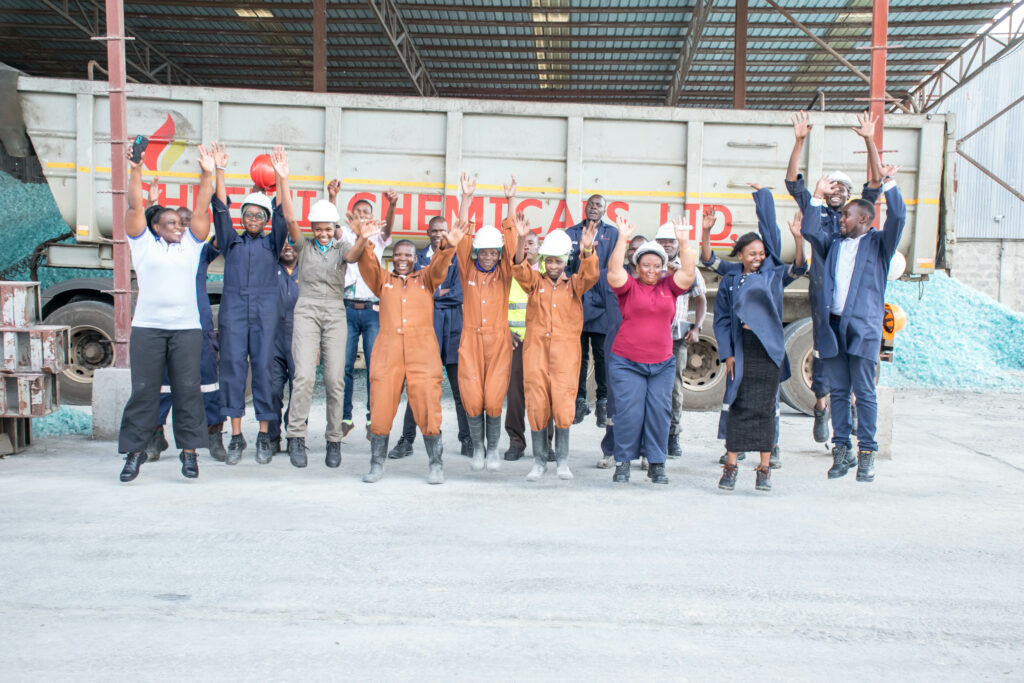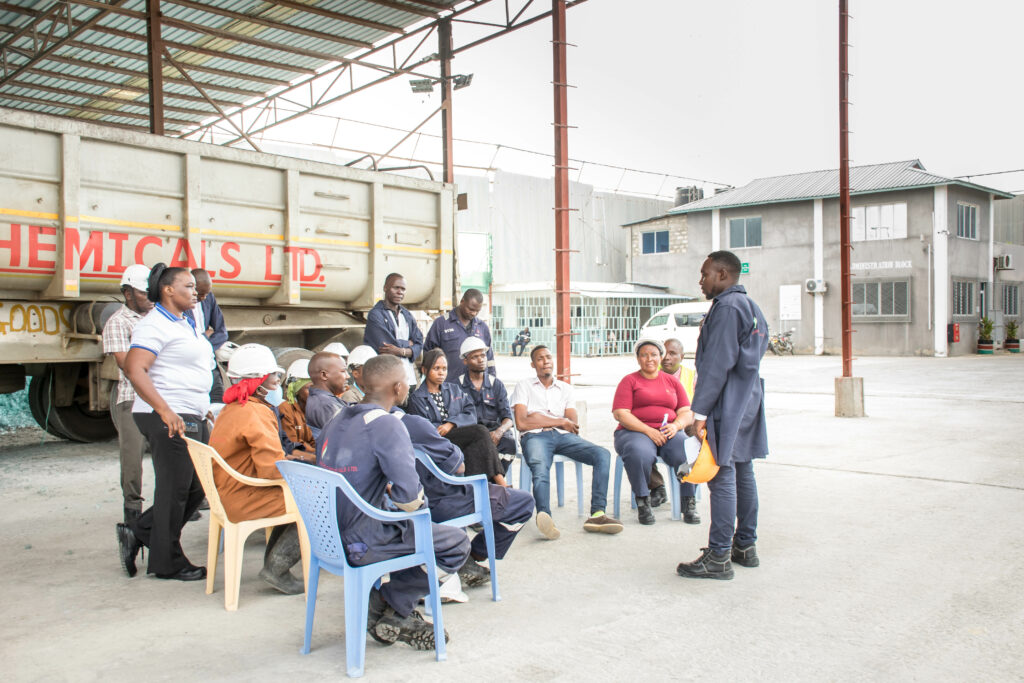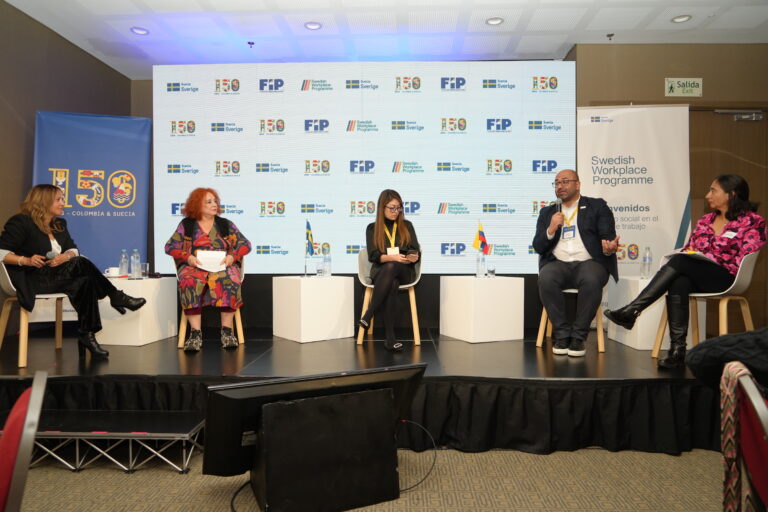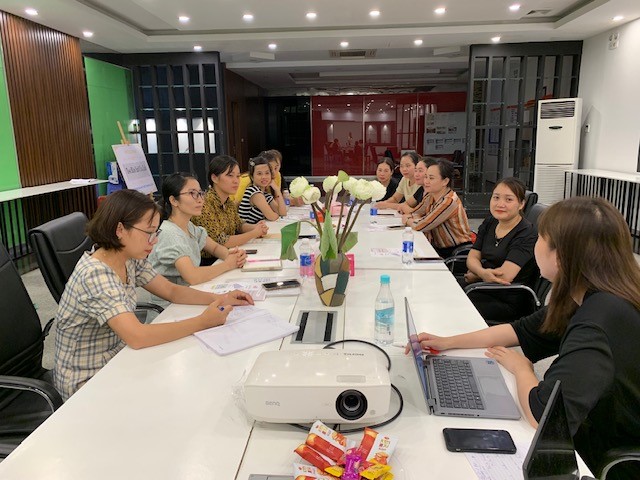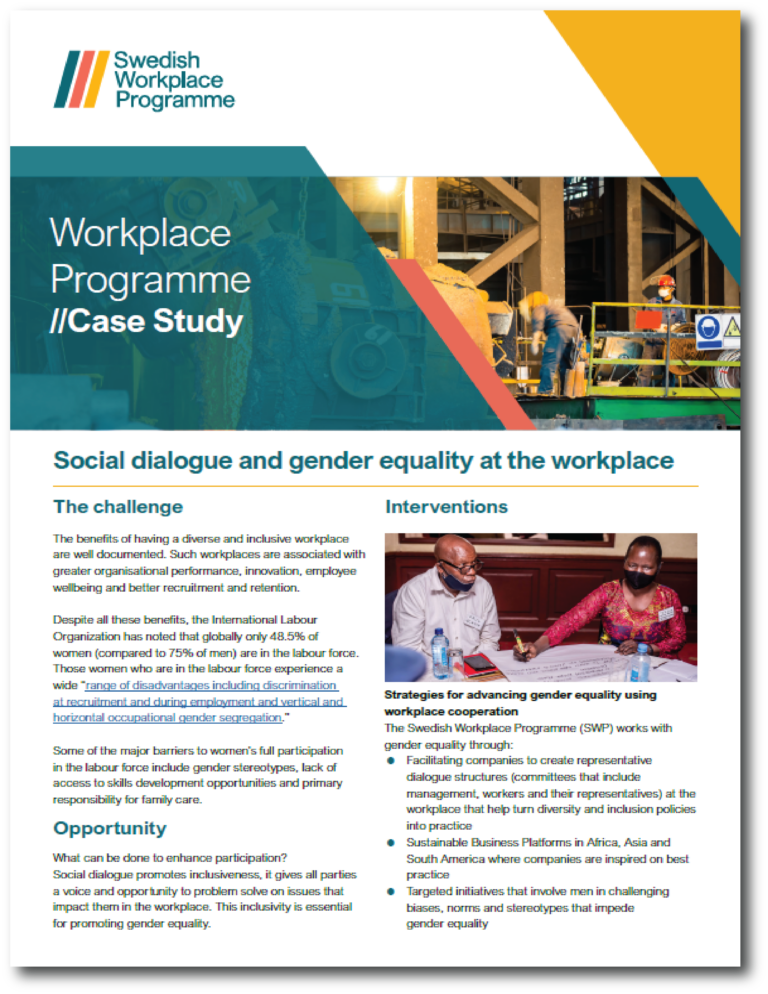SWP Kenya 2020-2023
At Shreeji Chemicals company transformation was catalysed by the partnership with SWP. As a result, management started to involve employees in decision-making processes by seeking their input on critical issues affecting production and workplace operations—a first-time occurrence within the organization.
Shreeji Chemicals is based in Mombasa with around 300 employees. Following the establishment of a SWP committee in 2021 a series of changes took place. Work environment became a priority for both employees and management. Early improvements was the provision of sufficient personal protective gear to employees as well as the equaly important compliance by the staff to use safety gear as instructed.
The early results paved way for more. Simultaneously, regular staff meetings were introduced for the first time, it helped foster a positive attitude among employees and management by providing a platform for two-way communication.

Committee members from HR and Employee representatives during a change management training, Mombassa, Kenya. 2022
Photo: Asa
The training sessions on motivational leadership for the committee prompted managers to advocate for similar trainings to take place among all supervisors and department heads.

As the program progressed, the company addressed issues such as absenteeism and siloed work practices, implementing policies to improve attendance and promote teamwork. Endline surveys revealed a notable shift in attitudes, with increased appreciation for job satisfaction and improved working conditions.

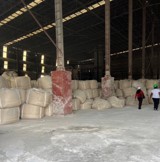
Visible development of air quality at production site from 2020-2023 a result of instaling and reparing ventialtion. The committee structure provided skills on cooperation that made possible for change to take place.
The gradual changes signify the shift of the company adopting more inclusive decision-making processes and sustainable organizational practices. By fostering open communication and collaboration, SWP contributed to empower both employees and management through trainings facilitation and coaching.
